It’s been… well, quite a year. Thankfully, there is reading. These are the books that moved me, taught me, lead me to wonder, question, re-think, and improved my life, personally and professionally. I am deeply grateful for them, for the opportunity to learn and experience and come alongside these authors. I hope you enjoy this list, and I am wishing you a healthy, happy, and peaceful 2021. Let me know your favorites from this year! I would love to hear them.
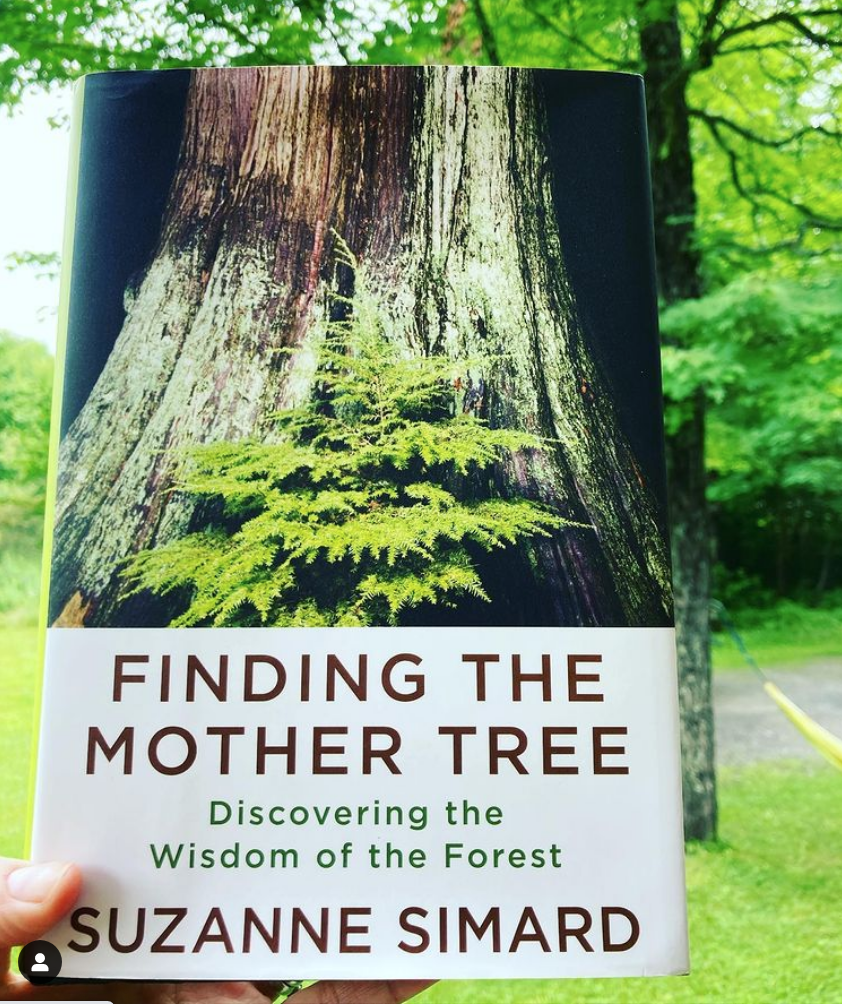
Finding The Mother Tree by Suzanne Simard
“I imagined the flow of energy from the Mother Tree as powerful as the ocean tide, as strong as the sun’s rays, as irrepressible as the wind in the mountains, as unstoppable as a mother protecting her child.”🌳
Dr. Suzanne Simard is now part of the growing number of inspirational, transformative, passionate, driven and brilliant women who inform my thinking, actions, writing and perspectives on the world. The binary and limited way forests were viewed, as competitive organisms, clear cut then re-planted in rows with set monetary value, was dead wrong, and Dr. Simard takes us on her life journey, from her logging family with deep roots (oh, yes I did) in the forests of British Columbia, to show us a new way of thinking. For anyone who knew in their bones that the forests were wise, thought they had more value beyond lumber, for anyone who knows that forests and trees connect, heal and transform our lives, and the ecosystem, or anyone curious about it, this book is for you.
The book is full of nature and science, and takes some focus and attention. It brought me back to my natural science courses at Colorado State.
The other thing I want to point out is that this book is not *just* for science lovers. You will see a holistic view of the forest ecosystems, connecting deeply to indigenous practices and beliefs.
Also, very inspiring and simultaneously maddening, in the book Dr. Simard is a woman having to navigate traditionally academic/scientific male spaces, as a young mother, and how she was gaslit, ignored, and persevered anyway with her research, vision and ideas. A way to live.
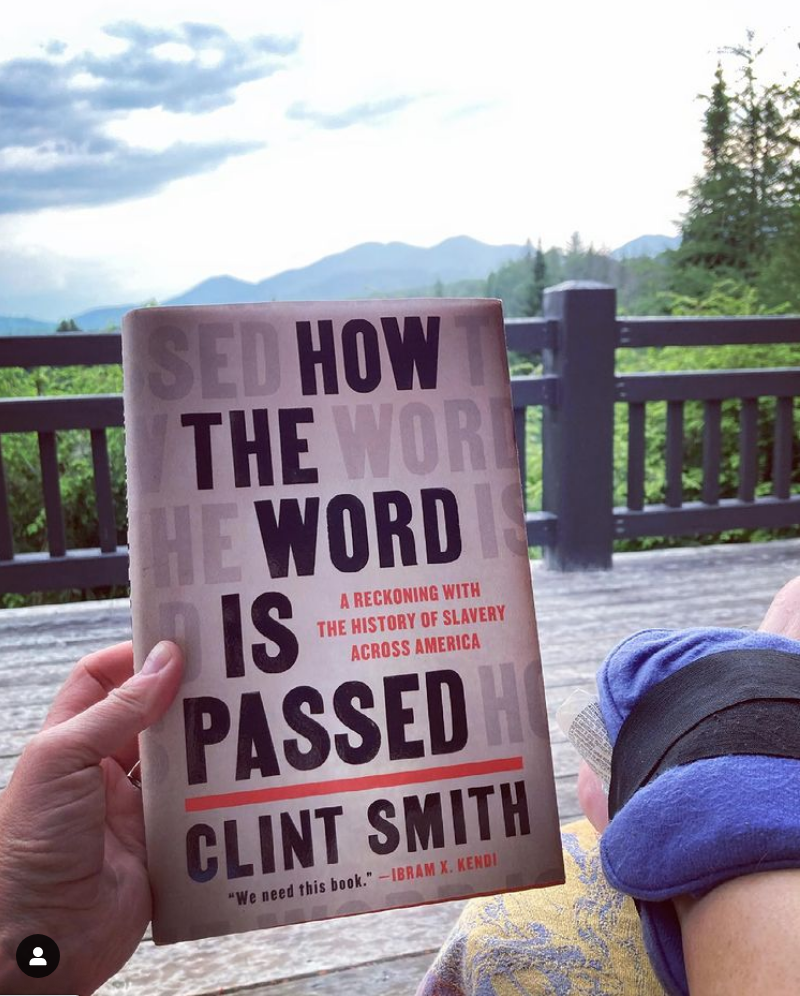
How the Word is Passed by Clint Smith
Poetic, lyrical, deeply researched and affecting, Mr.Clint Smith reveals through connections to place, people, story telling, and history the hard truths of America and its institutions. I learned more history here than in my entire K-12 education. And how I had been duped, shielded, into not knowing much of this until adulthood. As a country we cannot move forward until we truly see what has been shown to us by this brilliant scholar and writer.
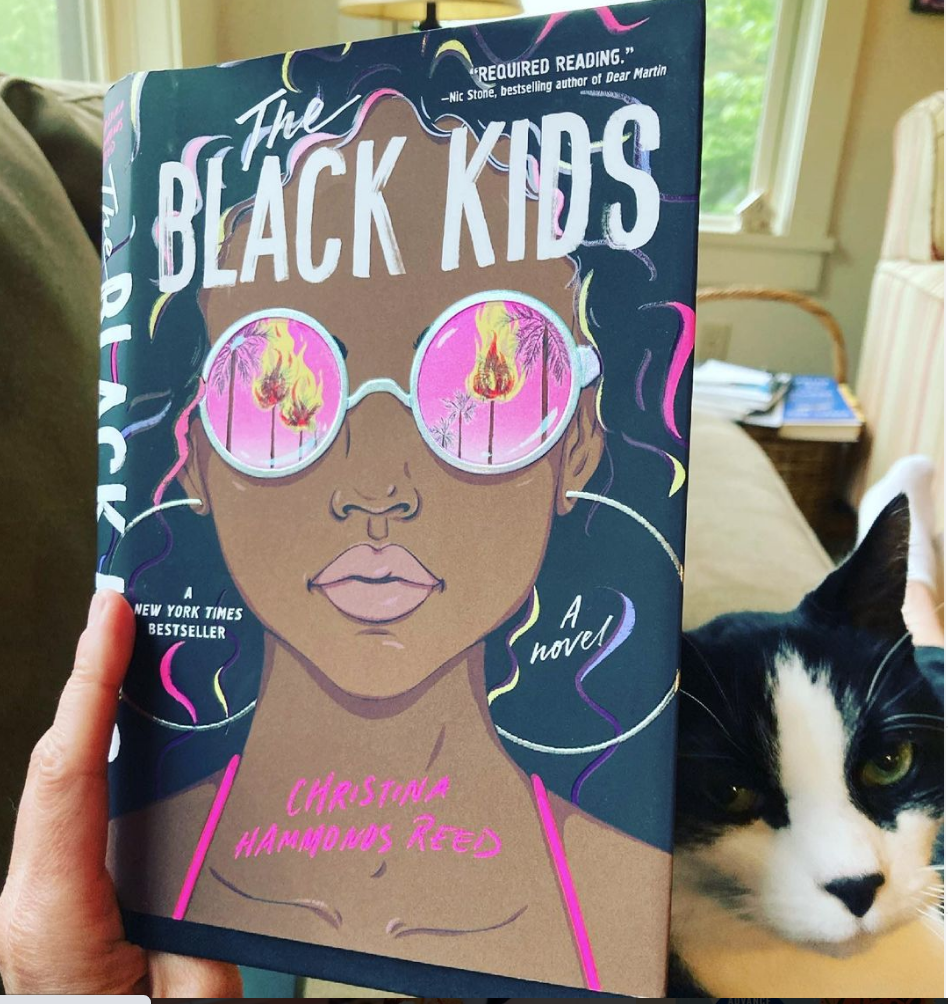
The Black Kids by Christina Hammonds Reed.
An up close and personal view of a family living in LA during the time of the Rodney King assault, trial, acquittal and unrest. So powerful in both the inside view of this time, and LA, and a girl finding her way through family, identity, and friend shifts. Powerful prose the intersectionality of being both black and female. And on being disbelieved, a system rigged: “Whenever a black or brown person gets shot by the police, it’s always ‘what did they do to deserve it’. The assumption is that it’s always deserved, somehow. Or ‘they should have listened. We don’t get the benefit of the doubt.” Family links to victims of the Tulsa massacre and generational racial trauma. Builds understanding. Vibrant writing, fluid. Love the characters and family like I know them. I’m sorry it’s over.
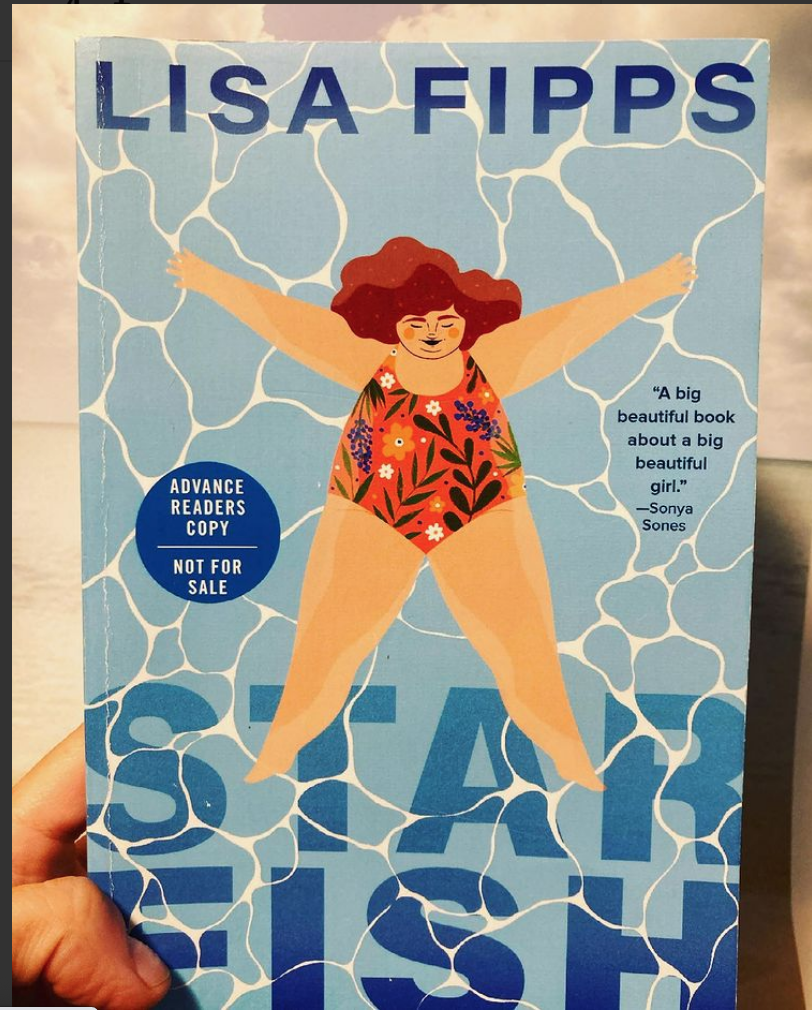
Starfish by Lisa Fipps
Take up space. Don’t shrink yourself for anyone. You are worthy of love and respect unconditionally. Stand up for yourself without being a bully. Even to your mother. Or your sister. Bravo, @authorlisafipps 💕💕! The world, my girls, and my students, needed this book. Thank you!
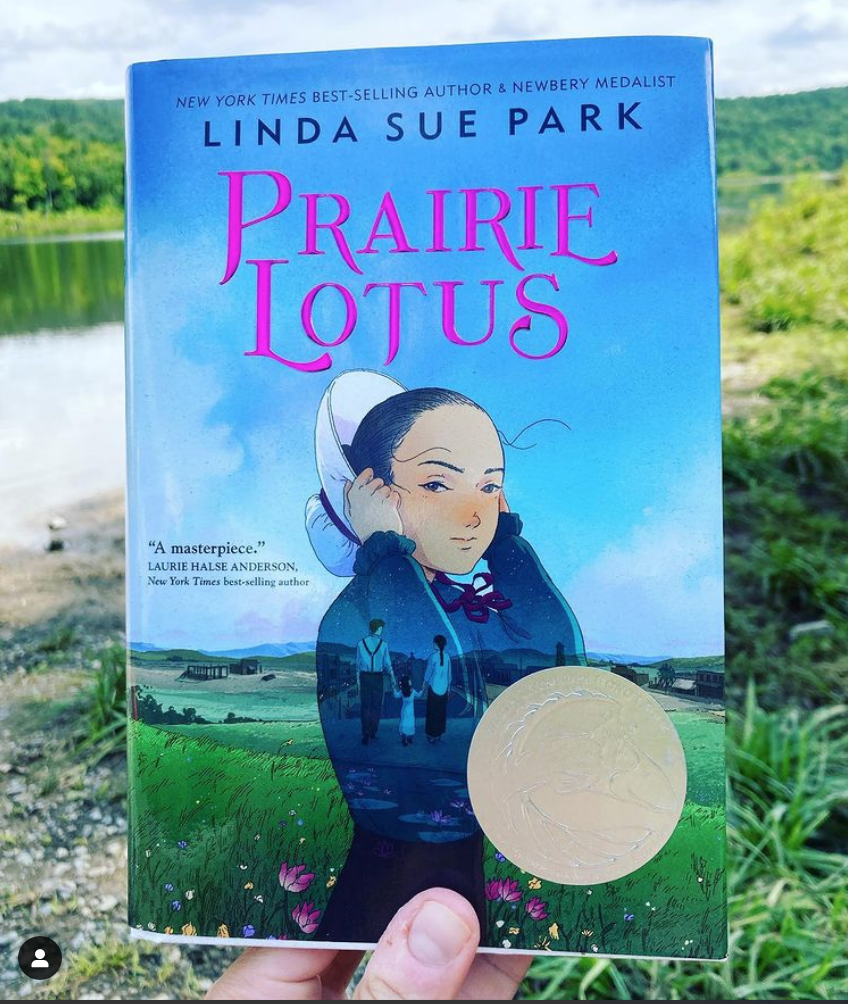
Prairie Lotus by Linda Sue Park
I have long struggled to reconcile with my history of watching (not reading) Little House on the Prairie and it’s seriously problematic representations (and lack there of) of indigenous people, issues of race, and gender. But it was there I learned about addiction, grief and loss, sexual assault, greed, and resilience as a kid. I grappled with these books in the classroom as well, so beloved by many. Thankfully, I have a new book to recommend now, which tackles the time period beautifully with a new heroine, Hannah, who is Asian American, and faces a community uncomfortable with her very existence in their small midwestern newly settled town. Her story illuminates a more accurate story of this time period, while holding on to the elements of small town prairie life in the 1880s. The author, Linda Sue Park, says that the book is “an attempt to reconcile my childhood love of the Little House books with my adult knowledge of their painful shortcomings.” I am so thankful to her for this, and will put it into the hands of Little House fans and readers.

Equity-Centered, Trauma-Informed Teaching by Alex Shevrin Venet.
I read this book and felt grounded before starting with students at the beginning of the year. It had me thinking deeply about unconditional positive regard, building relationships rooted in equity, and creating cultures of care. Thank you Alex!
I’m reflecting on what works to reduce bullying “is creating equitable, affirming school environments.”
And how race and gender intersect with school leadership and the importance of examining identities as a school leader.
Thinking of how to communicate daily to students—“I care about you. You have value. Nothing you can do will change that.” 💕-
Teachers and school leaders, please get this book! Would be a inspiring staff read.
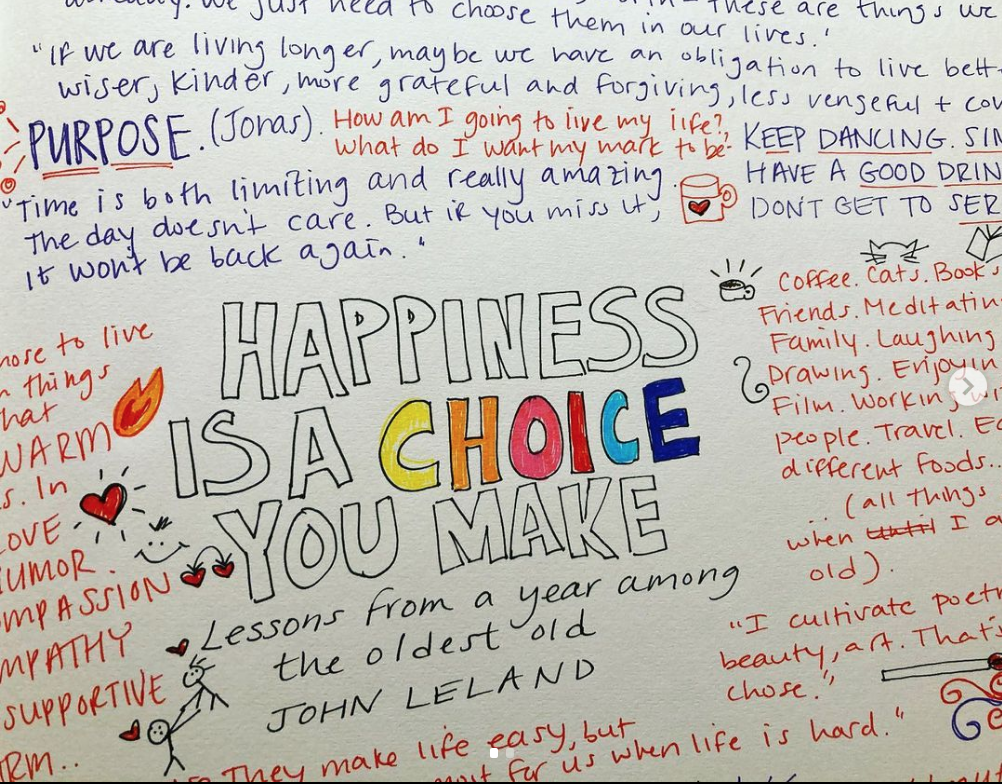
Happiness is a Choice You Make by John Leland
Back early last year, since most of us couldn’t spend time with their elders right, it felt important to me to read their stories and wisdom. While the title invoked in me some feelings of toxic positivity (just choose to be happy!!) the book itself is full of delightful lessons and a way to rethink growing old. I loved spending time with each of these souls, especially Jonas. I’ll leave you with a favorite quote, since you might not be able to read it:
“The good things in life— happiness, purpose, contentment, companionship, beauty, and love— have been there all along. We don’t need to earn them. Good food, friends, art, warmth, worth— these are things we have already. We just need to choose them in our lives.”
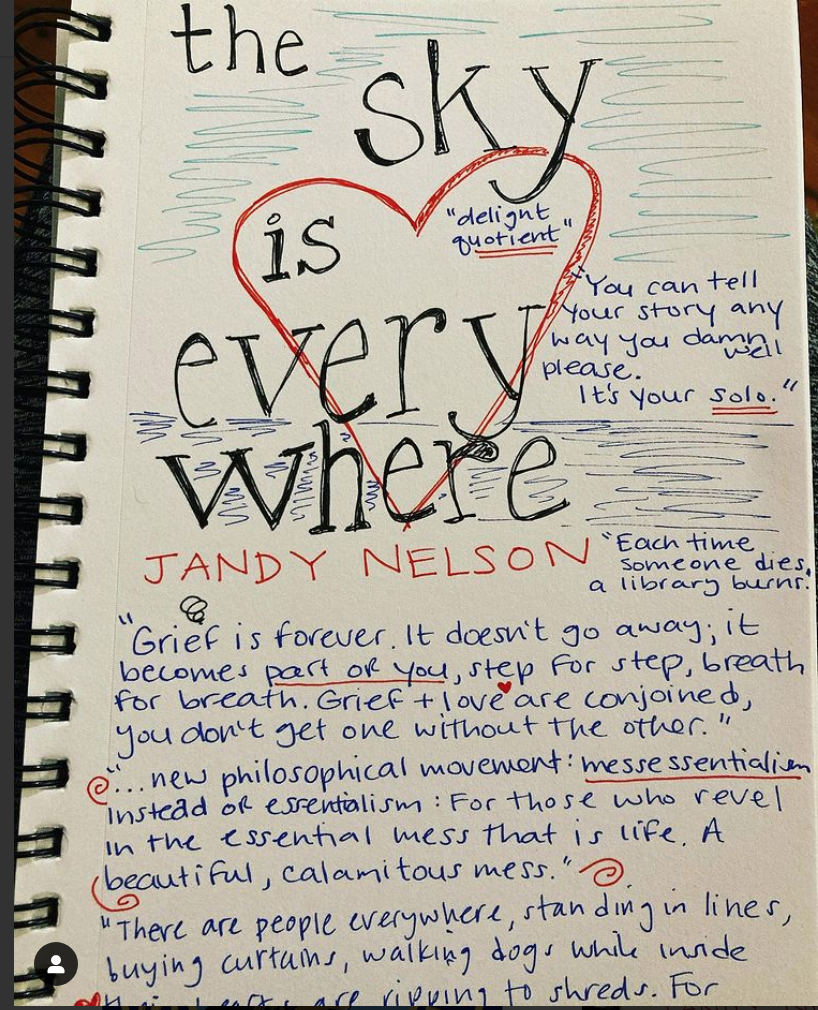
The Sky is Everywhere by Jandy Nelson
“You can tell your story any way you damn well please. It is your solo.”
I adore Jandy Nelson’s writing, how raw, emotional, and metaphorical it is, like a shiny, silver liquid on the page. In this book, Nelson explore the many layers and ways of grief, and love, and it is stunning. Nelson shares so many gems of wisdom, and phases and concepts I didn’t know I needed.. such as: “Delight quotient.” and “Messessentialism” to name a few. For anyone who has lost a close loved one, you will feel seen, you will know that others think, how can the sun still shine, how can people live their lives, when I have lost so much, and my world has fallen? And how I can feel joy again when my sadness is so big?
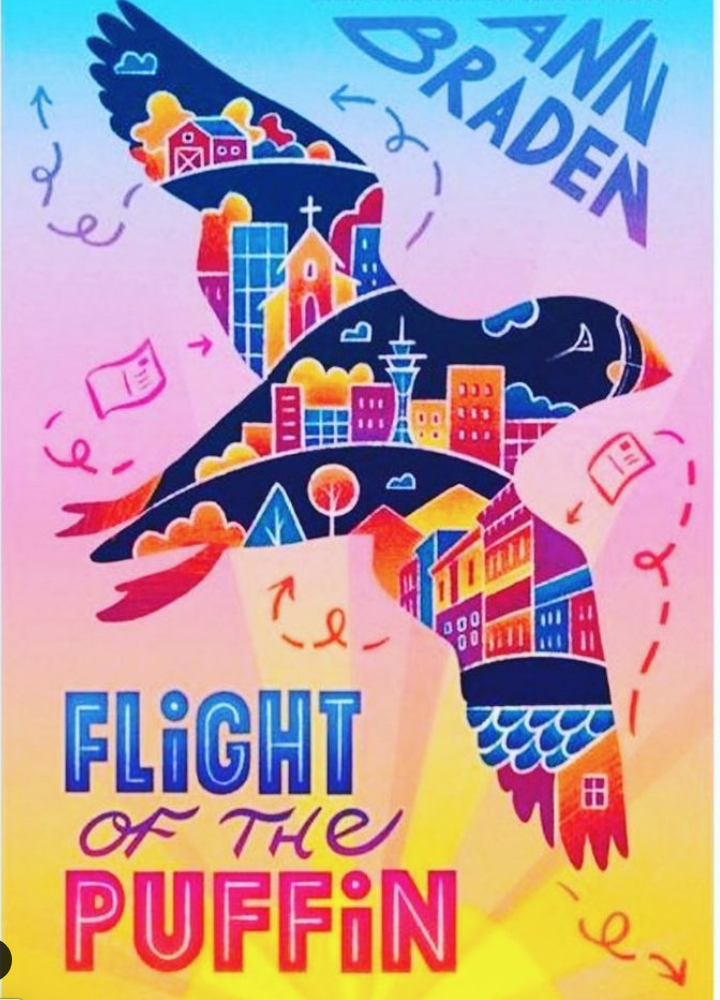
Flight of the Puffin by Ann Braden
I’m sitting in the afterglow of puffins! I love these very real and authentic middle grade characters so much I’ll hold on to them forever— each unique and beautiful. They are my students, my daughters, their friends. They are loss and beauty and glitter and sunshine. This book is deeply grounded in Vermont, in what divides and connects us, and the ways we can make a difference the lives of others. No one is too young to do that. And, an example of the power of changing your mind and heart when you have new information. Oh, does the world need that. A fabulous and inspiring read aloud- what I hope to do next.
I am so excited to dig into more books in the new year. What a wide, beautiful world of literature exists for us to experience, grow, learn, stretch, and feel. Sending you love and warmth and health and time for reading in 2022!



